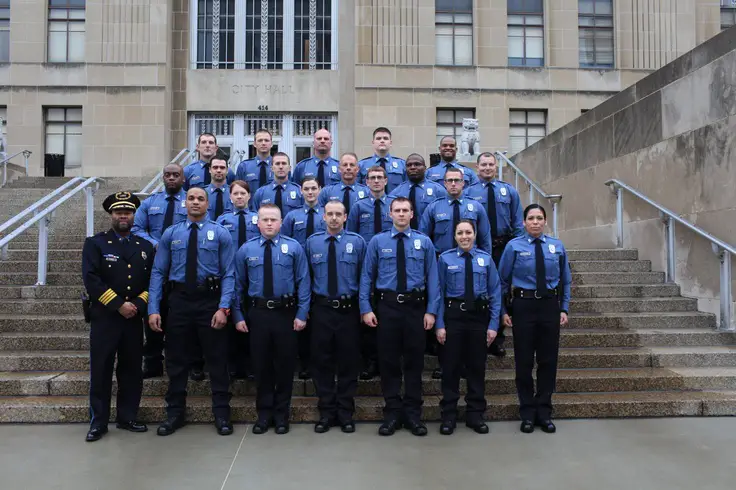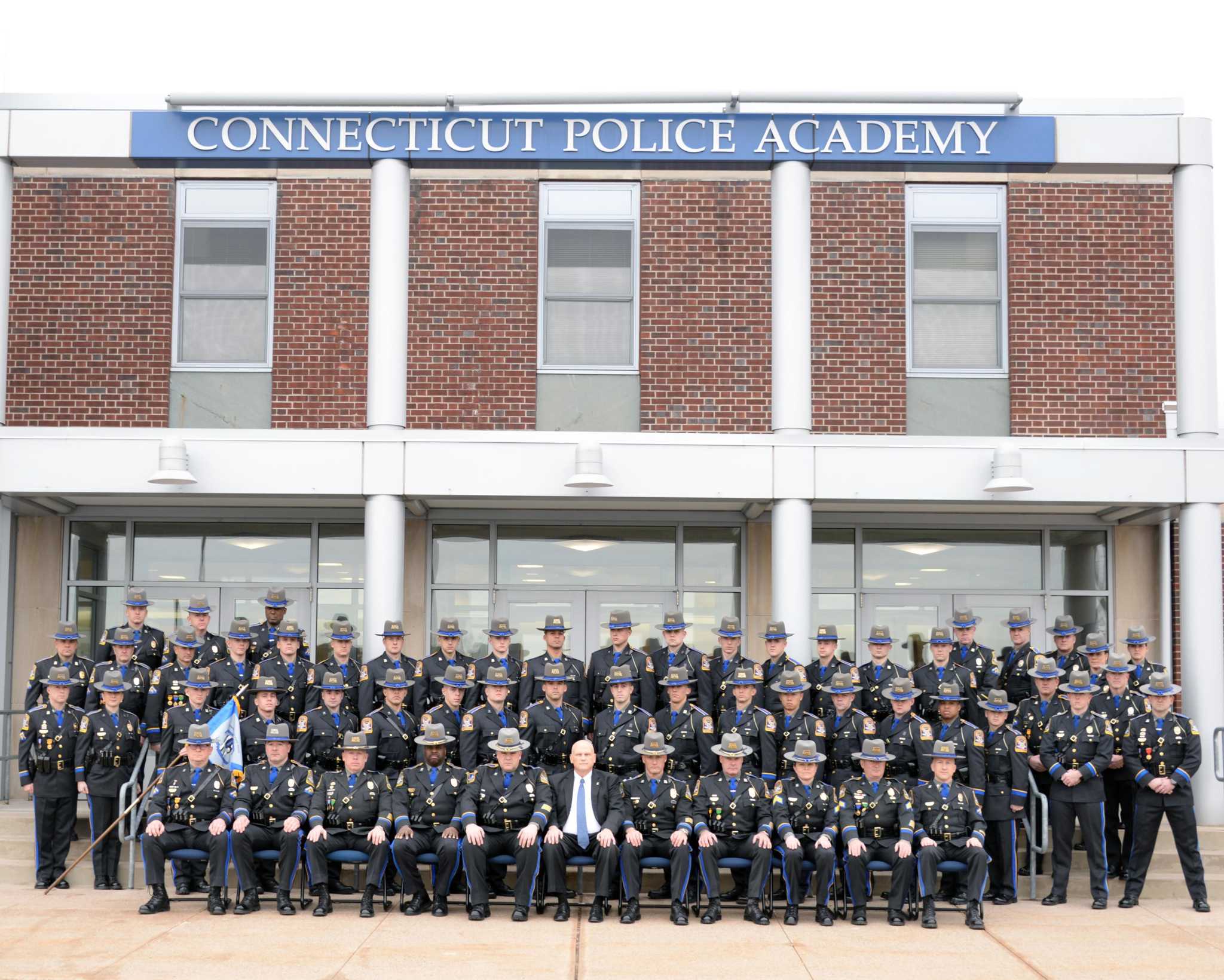Are you thinking about joining the law enforcement world?
Choosing the right police academy can make all the difference between an enjoyable and fruitful career, and one that doesn’t live up to your expectations.
Luckily, there are plenty of good police academies in Kansas to choose from, but which one is best for you?
In this article, my team has brainstormed to compile a comprehensive list of some of the best police schools in Kansas where you can get quality training and advance in your career.
Without further ado, we shall dive into the business of the day, however, let us answer some of the related questions about this topic so you can know what it takes to become a police officer in Kansas.
How do I join the police academy in Kansas?
Many people who are interested in becoming police officers have often wondered how they can join a police academy and start their careers.
They may have even inquired at a local law enforcement agency, only to be told that there is no way to become a police officer unless you already are one.
This is simply not true, as there are several ways that you can enter law enforcement by attending a police academy.
The best police academies in Kansas provide specialized programs and through these programs, aspiring cops learn about crime prevention, laws, and proper use of force, among other topics.
How long is the police Academy in Kansas?
The typical police academy length is 14 weeks and gives students an introduction to law enforcement.
However, there are other academies that run for less than a year or more than two years.
The longer police academies in Kansas allow students to earn a degree and become full-fledged officers.
There are four different types of degrees available for policing careers, each with its own set of prerequisites.
This degree program prepares students for jobs as corrections officers, patrol officers, and detectives within local, state, or federal agencies.
What are the best Police Academies in Kansas?
These are some of the best police colleges in Kansas for you to choose from and send your application, for each of them is an attached contact detail.
- The Kansas Law Enforcement Training Center
- Kansas City Kansas Police Department Training Academy
- Jo Co Community College Police Academy
- Highway Patrol Training Academy
- Wichita Sedgwick County Law Enforcement Training Center
- Kansas Commission on Peace Officers’ Standards and Training
- Kansas City Regional Police Academy
The Kansas Law Enforcement Training Center
Kansas law enforcement agencies, which include municipal police departments, state and county sheriff’s offices, and various special districts, are responsible for providing public safety throughout Kansas.
One way to learn how to become a Kansas police officer is by attending the Kansas Law Enforcement Training Center.
The KLETC is one of the best police academies in Kansas located at Hornett Rd, Hutchinson.
They provide basic training for new recruits as well as specialized education programs that can lead to career advancement opportunities.
Contact details:
Address: 11009 S Hornet Rd #8363, Hutchinson, KS 67501, United States
Phone: +1 620-694-1400
Kansas City Kansas Police Department Training Academy
As the name implies, this is one of the top-notch police academies in Kansas city where one can train in law enforcement and law.
In addition to Basic Recruit Training, Continuing Education, Leadership Academy, Driver’s Training, and Firearms Training, the program offers ongoing education and leadership training to non-sworn law enforcement employees.
For example, the recruit training course prepares future law enforcement officials, and the professional training course is intended for those looking to advance their careers.
Similarly, the leadership academy offers lifelong learners a chance to refine their skills in both their day-to-day job as a law enforcement officers and as a leader in everyday life.
Contact details:
Address: 7250 State Ave, Kansas City, KS 66112, United States
Phone: +1 913-596-2056
Johnson County Community College Police Academy
The Johnson County Regional Police Academy is one of the best police colleges in Kansas situated next to the Johnson County Community College campus in Overland Park, Kansas.
It was set up to provide training for officers from 18 law enforcement agencies in Johnson County.
In order to become a Police Academy Recruit, you first need to be a police officer who works for one of these agencies, and then you’ll be sent here to receive your basic training.
Contact details:
Address: Police Academy, 12345 College Blvd, Overland Park, KS 66210, United States
Phone: +1 913-469-8500
Highway Patrol Training Academy
The Highway Patrol’s Training Academy is one of the well-known police academies in Kansas, you can find this place at Iron Ave, Salina KS.
They offer training programs with experienced instructors, new recruits will become well-versed in both fundamental and advanced law enforcement skills.
Upon graduation, they are then assigned to field training in their designated district.
Contact details:
Address: 2025 E Iron Ave, Salina, KS 67401, United States
Phone: +1 785-822-1700
Wichita Sedgwick County Law Enforcement Training Center
The Wichita Sedgwick County Law Enforcement Training Center is a 24-week police academy that trains both full-time and part-time officers to work for local, state, and federal law enforcement agencies.
The training is rigorous—but with a 90% certification rate, most students don’t find it too difficult.
As one of the best police academies in Kansas, after graduating from WSCLETC, you can start your career as a sheriff’s deputy or police officer at any agency throughout Kansas.
Contact details:
Address: 4310 E 19th St N, Wichita, KS 67208, United States
Phone: +1 316-660-3800
Kansas Commission on Peace Officers’ Standards and Training
The Commission on Peace Officers’ Standards and Training (POST) is one of the reputable police academies in Kansas.
They work with each law enforcement agency to make sure that every person working as a peace officer for that agency is trained according to POST’s standards.
When you join a law enforcement agency, your training begins immediately, but if you transfer from one department to another or decide to become a reserve officer, you will have to complete additional training before you can work.
Contact details:
Address: 1999 N Amidon Ave #350, Wichita, KS 67203
Phone: (316) 832-9906
Kansas City Regional Police Academy
Located near Lee’s Summit, Missouri, KC Regional Police Academy offers entry-level police officers a chance to learn everything they need to know to be successful in their law enforcement careers.
The program covers everything from self-defense and defensive tactics training to CPR and first aid certification, along with up-to-date community policing techniques that help keep our communities safe.
KC Regional Police Academy is one of the best police academies in Kansas and was established in 1986 and has graduated over 1,500 police officers since then.
Contact details:
Address: 6885 NE Pleasant Valley Rd, Kansas City, MO 64119
Phone: (816) 413-3500
Frequently Asked Questions
How old do you have to be to join the police academy in Kansas?
Some states require applicants to be 18 years old, while others require applicants to be 21 years old.
Each state has different laws and requirements for joining a police academy and becoming a police officer.
Check with your local police academy or city council to find out what’s required.
How to become a police officer in Kansas
A police officer must possess a high school diploma or GED equivalent, as well as be between 20 and 29 years old.
You must pass a background check and drug test, have a vision of at least 20/70 with or without corrective lenses, and be able to lift 70 pounds.
There are also physical fitness standards you must meet. Go to each academy’s website to find out what they are.
A college degree is not required but is helpful for advancement within your department.
Kansas Police Academy Physical Requirements
Before you will be accepted into some of the top police academies in Kansas, you’ll be expected to go through an intense physical training program.
- You’ll need to be able to pass a physical agility test that requires running a mile and a half (2 kilometers) within 13 minutes and 56 seconds
- Doing 50 sit-ups in 60 seconds, and
- 27 push-ups in 60 seconds.
What is Kansas Law Enforcement Training Act?
The Kansas Law Enforcement Training Act (KLETA) was created by a resolution passed on January 25, 2008, by both houses of the legislature.
This resolution establishes minimum training standards for police officers and sets up a foundation for ongoing training throughout an officer’s career.
KLETA was codified into law with the passage of House Bill 2107 on April 2, 2010.
The Act is under regular review to ensure it meets current industry needs and best practices for law enforcement.
What is KLETC Certification?
KLETC certification is the official document that shows that a police recruit has completed practical training.
KLETC (Kansaskia Law Enforcement Training Center) offers law enforcement training and is accredited by a number of different organizations.
In order to enroll at KLETC for police training, an applicant must complete an extensive application process, including a criminal background check.
After enrollment, KLETC provides police recruits with practical training for 16 weeks.
To receive certification from KLETC students must pass their final exams with an 80% or higher.
Conclusion
Being a police officer is a really honorable and bold move to take, this article was written with the purpose of helping you find the right place to get your training.
So this brings us to the end of the article on the best police academies in Kansas.
We do hope that this article solves your immediate needs, and if you have any suggestions for us, kindly contact us.
We also have other great articles on our home portal.
















